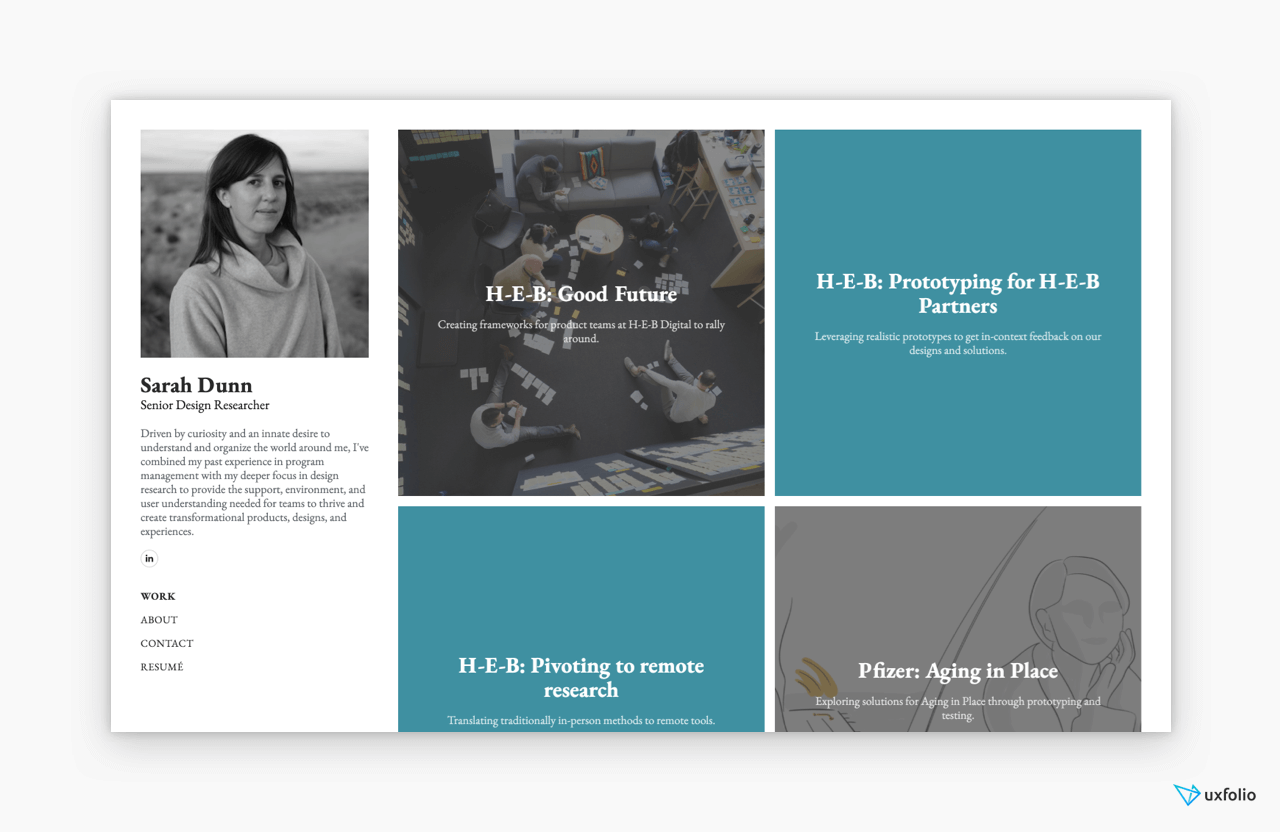In 2021, $87,790 -$148,258 is the average UX researcher salary range in the US. Now, that might sound low to some and high to others, but there are many shades to such data, such as location, experience, education, perks, bonuses, and more. In this article we’ll uncover those details and more:

The average UX researcher salary in the US
- $145,537 (Indeed – 394 reports)
- $126,737 (Glassdoor – 250 reports)
- $87,790 (Payscale – 1119 reports)
There are big differences between these averages, so the truth must be somewhere in the middle. But a simple average is not telling much:
First, there’s a huge difference between junior and senior salaries. Second, you might feel underpaid or satisfied based on these averages, but your cost of living (based on your location) is what puts things in perspective. Third, such averages do not include bonuses and perks.
This means that there are three important factors to consider, besides base salary averages:
- Experience
- Location
- Perks.
1. UX researcher experience and salaries
Juniors and interns make less than seniors. That’s how the world works, and that’s what makes experience the most valuable asset on the job market. Experience comes up the most through the hiring process: in your resumé, UX researcher portfolio, and during the interview.
Many job seekers make the mistake of preparing for the esoteric questions while neglecting to prepare for questions about their experience. We’d argue that when it comes to your salary, the latter holds much greater importance and value: the more you’ve worked the higher salary you can expect.
Yes, it’s important that you’re a good match for the company and all that, but in the end, your experience is what’ll make the difference. This applies even more at larger, stricter corporations.
Converting years to money
Your years of experience will also translate to money: the more you have the higher salary you can expect. Payscale shows how your salary can grow as you gain more experience:
| Seniority | Years of Experience | Average Salary | Difference from Average |
|---|---|---|---|
| Entry-level | 0-1 | $69,719 | -21% |
| Junior | 1-4 | $82,386 | -6% |
| Medior | 5-9 | $103,254 | +18% |
| Senior | 10+ | $119,573 | +36% |

Experience and the interview
Let’s put this in perspective. Two candidates apply for a UX researcher position at a fintech company. Which one has higher chances of getting the job: the one who has 3 years of experience at another fintech company, or the one who has 3 years of experience at a pharma company?
When you’re preparing for an interview, take plenty of time to assess your career. Think through all your projects, try to identify your learnings, favorite tasks, achievements, process, and everything you can. There’s no need to learn all this in a structured way. Just make sure that you remember the key details for your cornerstone projects:
- process/methods,
- problem – solution,
- learnings, and
- achievements.
However, there’s a secret to this. If you’ve put in the effort when creating your UX researcher portfolio, you’ve already done all the assessments you need. You’ll be much more confident talking about your previous projects, and you’ll have a real-life example to give to almost any question.
2. Location & UX researcher salaries
Comparing salaries without regard to location is pointless. There’s this thing called “cost of living” which must be taken into consideration every time you’re looking at salaries. This is especially important if you’re planning to relocate.
Looking at the high salary average of a city like San Francisco or New York can be enticing. However, when you consider the cost of living in those cities, you might realize that you’ll have more money left in your account if you make less in a different city.
Now, this does not mean that you should erase all your dreams. If you dream of living in a certain city, working for a certain company, then you should go for it. But it still doesn’t hurt to prepare yourself and research what’s to come. Check out some of these examples for a better understanding:
| City | Average | Junior | Medior | Senior | Cost of Living |
|---|---|---|---|---|---|
| San Francisco | $117,049 | $89,320 | $131,724 | $165,000 | +80% |
| New York | $98,298 | $75,941 | $119,440 | $120,459 | +129% |
| Austin | $91,643 | $82,048 | $105,315 | n/a | -3% |
| Chicago | $74,811 | $64,054 | $75,132 | $87,429 | +23% |
| Seattle | $101,468 | $90,486 | $97,937 | $112,099 | +49% |
| Denver | $77,055 | $50,868 | $76,207 | $81,007 | -5% |
3. Perks and company size can influence your salary
When considering your salary, you should always count with the perks and their value to you. Both these points are extremely important. Most articles fail to recognize that while perks have a monetary value on paper, they also have a subjective value.
Does paid time matter if you won’t be comfortable taking it? Does a company car help if you can get to the office with a bike or using public transportation? Is daycare relevant to people who don’t plan on having children? And the questions can go on and on. On the other hand, you have perks that are universally valuable, such as health insurance or retirement planning.
The point is that you shouldn’t let a long list of perks and benefits blind you. Take a careful look and consider the value of each perk before agreeing to a salary that’s below your expectation.
Company size correlates with salaries
The bigger the company, the bigger the salary. If you think about it, it’s logical: Larger, legacy companies have more resources, therefore they can afford higher salaries. Meanwhile, smaller companies offer lower salaries, but a very different atmosphere.
Chances are that you’ll learn more at a smaller company. But that’s out of necessity. Smaller companies usually don’t employ a team of UX researchers. Which basically means that you’ll do more.
Large companies usually work in teams. There’s a dedicated person for everything, which means that your responsibilities will be much clearer and limited. Depending on your personality, this can be an advantage or a disadvantage.
Negotiating UX researcher salaries
Salary negotiations are nerve-wracking. You want the job, but you also want to get your worth. So how do you find the balance? It all begins by assessing your situation:
- What can you afford? This is the ugly part that most people and articles leave out. If you can’t afford to continue looking for jobs, you are more likely to take an offer that’s not ideal. Do not let anyone shame you for this and do not be hard on yourself either. Sometimes it’s about survival.
- Salary caps exist. The person you’re negotiating with was given a limit as to what they can offer. Regardless of how generous and nice that person actually is, they don’t have the power to raise the offer above a certain cap. Always remember that the other person has someone to report to. If you can’t seem to reach an agreement and you can afford it, just move on.
- Stay realistic. Asking for an obscenely large salary or a suspiciously low one are equally bad tactics. That’s why you need to do your research: check salary averages in the area, ask colleagues, and consider things such as cost of living and perks.
- Increase your value. Identify the areas where you might be lacking, and start working on them. If it’s experience, you can do some personal projects or take on some smaller projects. If it’s about skills, find ways to acquire or polish them. And if it’s about education, there’s no way around it: you need to collect the necessary degree.
Education level of UX researchers
As we’ve touched on it above, education is something that is hard or even impossible to compensate for when it comes to salaries or landing a job. If a company requires you to have a doctoral degree in psychology, chances are you won’t be able to make up for not holding one. However, that’s an extreme example. According to Indeed, only 18% of employed UX researchers have a doctoral degree:
- 50% of UX researchers hold a bachelor’s degree.
- 30% of UX researchers hold a master’s degree.
- 18% of Ux researchers hold a doctoral degree.
- 1% of UX researchers hold a high school diploma (exclusively).
The most valuable UX researcher skills
As with every other job, in UX research there are also certain good-to-have UX research skills that might affect your salary. These are usually skills that are not part of your day-to-day job but are still relevant to it. These skills include product development, product management, UX design, and data analysis.
Regarding UX research skills, here are the most frequently mentioned ones: usability, UX, survey design, quantitative research, qualitative research, statistics, information architecture, and user interviews. Obviously, there’s much more to being or becoming a UX researcher, but these seem to be the most mentioned skills in regard to UX research.
Land your next job with a stunning UX researcher portfolio!
Whatever is your dream salary, you’ll need a portfolio to achieve it! With UXfolio you can build a stunning UX researcher portfolio without the need to code or design. You can choose from various stunning portfolio templates and customize them in a few simple steps. What’s more, you can rely on our font pairings, beautiful gallery sections, and built-in mockups to showcase your work in the best possible way. Try UXfolio for free!